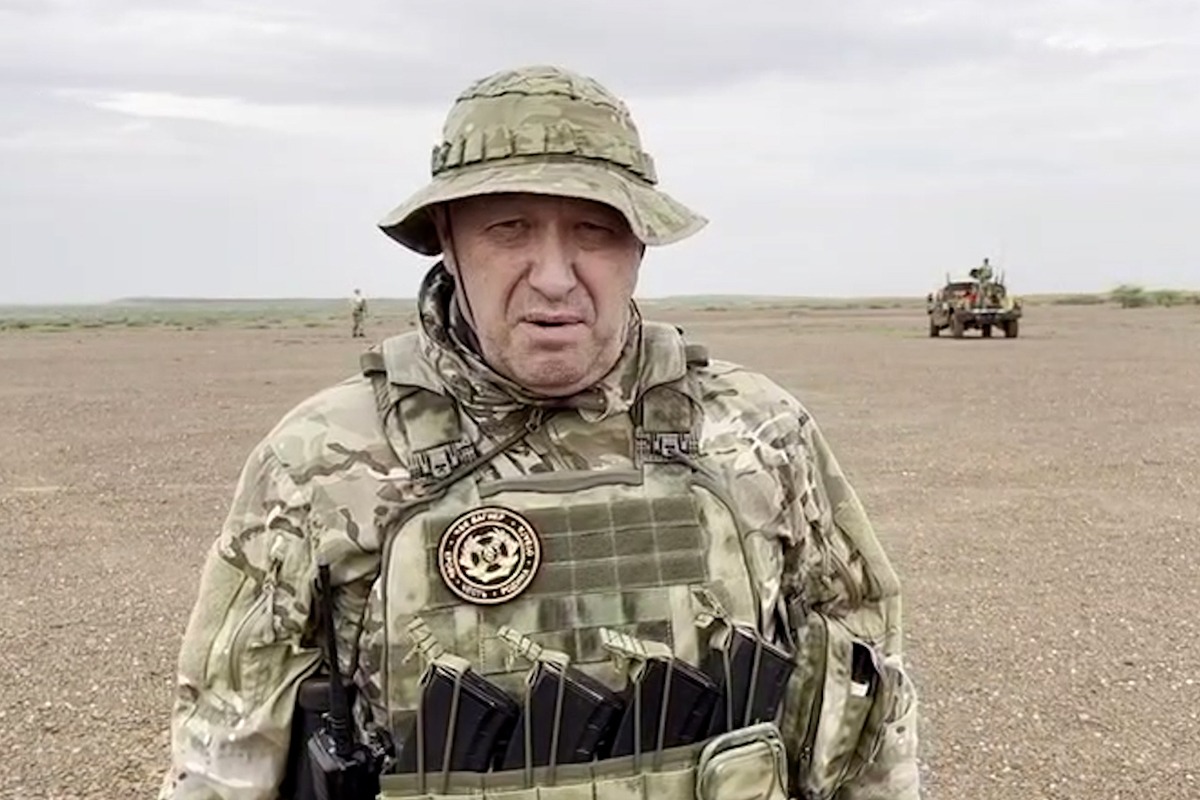At the time when India was settling down with the excitement of historic moon landing on Wednesday night, news travelled from Russia about the possible death of Wagner chief Yevgeny Prigozhin. He was flying in a private plane with top Wagner commander to his hometown St Petersburg. Successive updates in different Telegram channels claimed that his death in southwestern Russian region of Tver – which was later confirmed by authorities.
The prevailing scenarios could be a few. The Western media points towards Vladimir Putin – citing this to be Putin’s payback for the June coup attempt, so that could be a possibility. Or, it could be that the West themselves got Prigozhin, through one of their intelligence agency hit-men or team, because they have been distinctly uneasy with Wagner’s increasing influence in the Sahel region. A sneak attack by the Ukrainians can also not be ruled out. Or it could just be a regular accident; the analysis of the flight data found that the plane ascended and descended swiftly before crashing. Citing the analysis, Captain Ross Aimer, a retired United Airlines pilot and CEO of Aero Consulting Experts, said: “Zigzagging in the air basically tells me that somehow the pilot may have lost control of his airplane — for whatever reason… let’s say a missile strike or a piece of the aircraft coming apart.”
How does it mean for Wagner? They are deployed in Belarus and are actively providing operation and combat support, training, and regime security in a number of countries in the African continent. Wagner mercenaries are even in the domain of leadership advice, logistics, and intel for some states. Would this mean Moscow establishing direct contact with these clients? Wagner has already a mechanism in the event of the top command ceasing to function – which was highlighted by their spokesperson. A Russian official has assured that the functions of “private military contractors” in foreign countries will have no impact due to the loss.
ALSO READ: Did Putin mismanage Prigozhin affair?
Could this mean Putin is aiming to put a cap on Russian interests in Africa? If that is the case, then there must be some guarantees provided by the West. What could they be? Though this option seems quite stunning, there have indeed been some interesting developments; let us consider them briefly.
First is Ukraine. There seems to be an increase in the number of people within America who believe that the USA should stop sending money to Ukraine. Lately the Biden administration has been sending a few hundred millions every now and then, just to ensure that the state does not collapse. The proposed $24 billion remains locked in the House of Representatives. With an election coming next year and Americans increasingly disillusioned about the Biden administration’s largesse in Ukraine, the only face saving solution lies in the approval remaining stuck in a politician-bureaucratic maze. Not only Republican frontrunners like Trump or Ramaswamy, even close associates of ex-leaders of Ukraine have become openly vocal about the perils of pumping money in Ukraine. It is, of course, well understood that if White House shuts the money-tap in Ukraine, EU countries have no means or motivation to sustain the war. As for Joe Biden, there is always the proposed war against China that (many think) can boost his chances in 2024.
ALSO READ: Niger coup: What is at stake for the West
Niger too, across the ocean, has thrown up a big surprise at the same time. As soon as the USA put Ambassador Fitzgibbon in Niger, Strategic Culture carried out an analysis that has now been banned for some reason. The analysis argued that more than against Russia, these acts – of instructing ECOWAS to go slow and dispatching an ambassador to Niger – were US initiatives against France. The USA, thought the analyst, is now at a stage where in order to sustain, it is easier for them to cannibalize into domains of their allies rather than creating new ones. Tearing into territories that are under the control of CFA France is an easy way just like it was easy to shift industries out of the EU during the course of the Ukraine War.
The rationale seems to hold grounds given the run up to now. Things have changed for the better after the Fitzgibbon appointment. The New York Times was granted access to Ali Lamine Zeine – the prime minister-designate of Niger – to conduct an interview. The interview has had quite a favourable reception in the power corridors of the Beltway. The ECOWAS, instead of mobilizing its top generals to attack Niger, as was the initial plan, mobilized their top mediators instead and physically interacted with General Tchiani, to emerge with the signal that all is well in Niger.
Summing up: the initial animosity between Niger and the USA has cooled down significantly; Prigozhin – who was seen in Africa just about a couple of days back is no more; and there are whispers of the USA reducing its aid to Ukraine. Is this a quid pro quo – Moscow giving up its designs on select African territories for Washington abandoning Ukraine? Or is this another one of US’ charm-offensive, like the ones that have caught Russia off-guard a number of times previously? Let us just keep a watch.
(Arindam Mukherjee is a geopolitical analyst and the author of JourneyDog Tales, The Puppeteer, and A Matter of Greed.)
Disclaimer: Views expressed are the author’s own.

